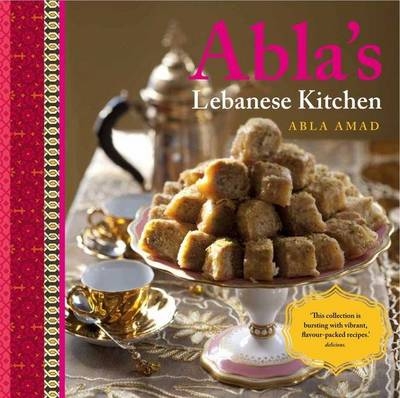Information about the book
Introduction
In 2001, the first edition of this book was published; since then, little has changed, except that my willingness to cook and please people has only grown stronger.
Not in my wildest dreams did I imagine that I would put together a cookbook, let alone expect that so many people would enjoy it. Since the publication of The Lebanese Kitchen I have been astounded by the countless calls, letters and cards I have received from people around the country (as far afield as Darwin and Perth) and people I've never met, who want to let me know how much they've been delighted by the book.
Countless others – some of whom have become friends – have called simply to say, 'We are cooking from your book and we are thinking of you'. There was even a taxi driver – I never got to know his name! – who for years would drop people off at my restaurant, and who once told me that he would often say to his passengers, especially those from overseas or interstate, 'If you want to eat the best Lebanese food in Melbourne, go to Abla's'.
It should be as plain as day that I have had enormous support, not only from family, close friends and the Lebanese community in Melbourne, but from the wider Australian community as well. It's gratifying for me to know that my cooking has touched the lives of so many. And that's why I am so happy for the opportunity to update and expand the original book.
Now I must say a word or two about the new recipes included in this edition. I can think of only two or three other Lebanese restaurants that were around when I opened my Carlton restaurant in 1979. Today there are hundreds of Middle Eastern restaurants, cafes and bars dotted all over Melbourne (not to mention elsewhere in Australia), but I have many beautiful customers who have been coming to my place for a long, long time – some of them for twenty or thirty years – and now their children and grandchildren are coming along too.
The new recipes are not only personal favourites that I hadn't included in the earlier edition. It dawned on me that there is a new generation who have been exposed to different cuisines and are willing to try them; they are also concerned about what they eat. I have included recipes that tend towards being vegetarian for, on top of liking to eat well, today's young people are health conscious.
Every two years I go back to Lebanon to see what's happening and get some new ideas. I still feel that I'm learning and I've noticed a lot of different influences over the past twenty years – the way of life of the Lebanon I grew up in has changed considerably and so has the cuisine.
But I still love to cook traditional Lebanese recipes, and so let me tell you a story about a dear and loyal customer who has come to my restaurant from the first day it opened. One day he said to me, 'I've sometimes expected something different, but the food hasn't changed'. At first I thought he was going to complain; instead he said, 'Every time I come here the experience is as good as the last, if not better. Abla, I never want you to change'.
It occurred to me while putting together this edition that maybe there are many others like my dear and loyal customer, both young and old, who want to have some lasting link with traditions that are fast disappearing. My best proof of this is my grandchildren, who come to my home for a few hours on a Saturday just so they can learn a couple of recipes from me and not lose touch with their Lebanese heritage. For me, this book is more than a cookbook; I consider it a memoir of my culture as well.
All that is left to say is that I love to cook and, while this may not be the most comprehensive cookbook on Lebanese cuisine, at its heart it has this honest declaration behind it. I hope you feel the same way when you use it and share the pleasure I feel when I sit down to enjoy these dishes with my family and friends.

